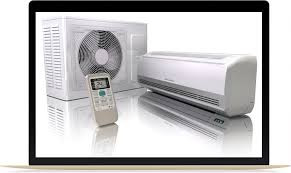AC use at healthcare facilities during covid-19; Health dept issues detailed guidelines
Kanwar Inder Singh/ royalptiala.in/ Chandigarh
Allaying genuine apprehensions on the count with the onset of summer season, the Health Department has issued comprehensive guidelines for use of Air Conditioning particularly at health care facilities besides in domestic and commercial settings, in the wake of Covid-19 outbreak.
Disclosing this here today, the spokesperson of Health Department said since Air-conditioning systems generally work on the principle of re-circulating the air inside the room, there have been concerns that it poses a threat of infection to other people especially in large facilities such as malls, offices, hospitals, health centres during present situation.
Pointing out that in healthcare settings, the probability of spread of infection is higher especially in COVID-19 wards or isolation centres, the advisory recommends the air-conditioning system in these facilities should be isolated and different from rest of the hospital or the building so as to prevent the recirculation of air which may be containing the droplet nuclei having virus.
In certain settings, where a separate air conditioning is not possible/feasible, exhaust air is likely to contain particles carrying the virus and hence a suitable technique should be deployed to prevent the spread of infections. The treatment of exhaust air can be done by HEPA filtration or by chemical disinfection of the exhaust air from COVID-19 patient room by bubbling the exhaust air through a “Diffused air aerator tank” (preferably of non-metallic material) holding a 1% sodium hypochlorite solution, the advisory reads further.
Each quarantine centre shall be well ventilated and preferably be maintained at a negative or neutral differential pressure. When mechanical ventilation is resorted to, it shall be a once through system (non- recirculatory system) that provides a “clean to dirty” (towards the patient and away to the exhaust) air flow pattern, the spokesperson added.
Preventive maintenance on all units as per the manufacturer’s guidelines shall be ensured. This should include disinfecting and cleaning of Filters, grilles, diffusers & internal surfaces.
In commercial and industrial settings, the advisory recommends best action to limit the risk of spread of COVID-19 infection through air is to ventilate the indoor environments with outdoor air as much as possible.
Mechanical ventilation systems and air conditioning systems, which provide ventilation, can perform this function more effectively than simply opening the windows, because they improve the quality of the outdoor air with filtration.
If fresh air is not provided, it is advisable to introduce a fresh air duct attached to a central inline fan filter unit and distribute the fresh air by grilles into the space or near the indoor units in case of multiple cassette or multiple hi-wall units.
A minimum fresh air volume of 3 cubic meter/hour per person and 3.75 cubic meter per hour per square metre (5 cfm per person and 0.6 cfm per sq ft) is recommended.
In buildings without mechanical ventilation systems, it is recommended to actively use operable windows. In case of re-circulating system, it is advisable to limit the return air circulation. The return air system could be converted to an exhaust system.
The room temperature, for residential purposes, should be set between 24-27 degrees Celsius and the relative humidity should be maintained between 40% – 70%. The Air conditioners should be serviced often so as to keep the filters clean.
Exhaust fans can be installed in the rooms containing a large number of people so as to create a negative pressure in the room and ensure the entry of fresh air in the premises. The circulated air inside the room should be vented out frequently.
April,27, 2020



